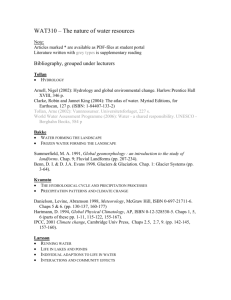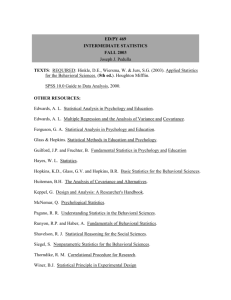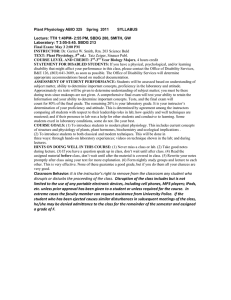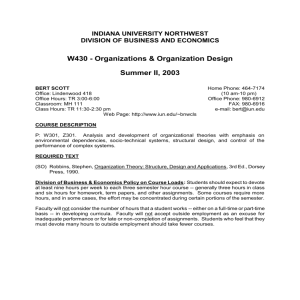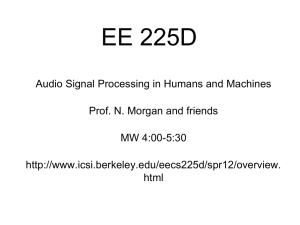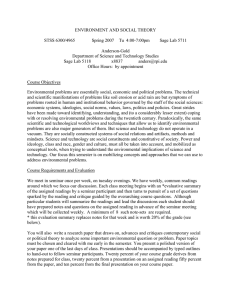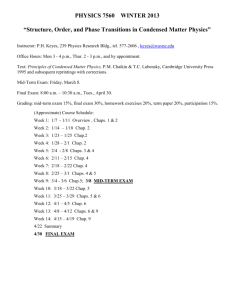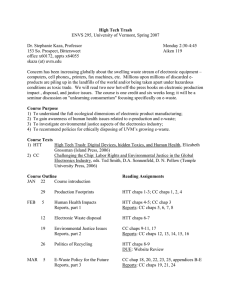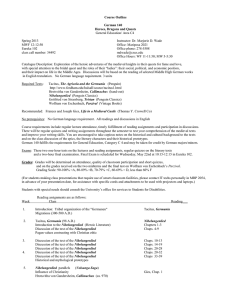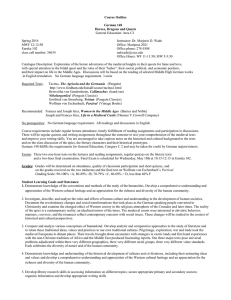Term 1, Week 2
advertisement
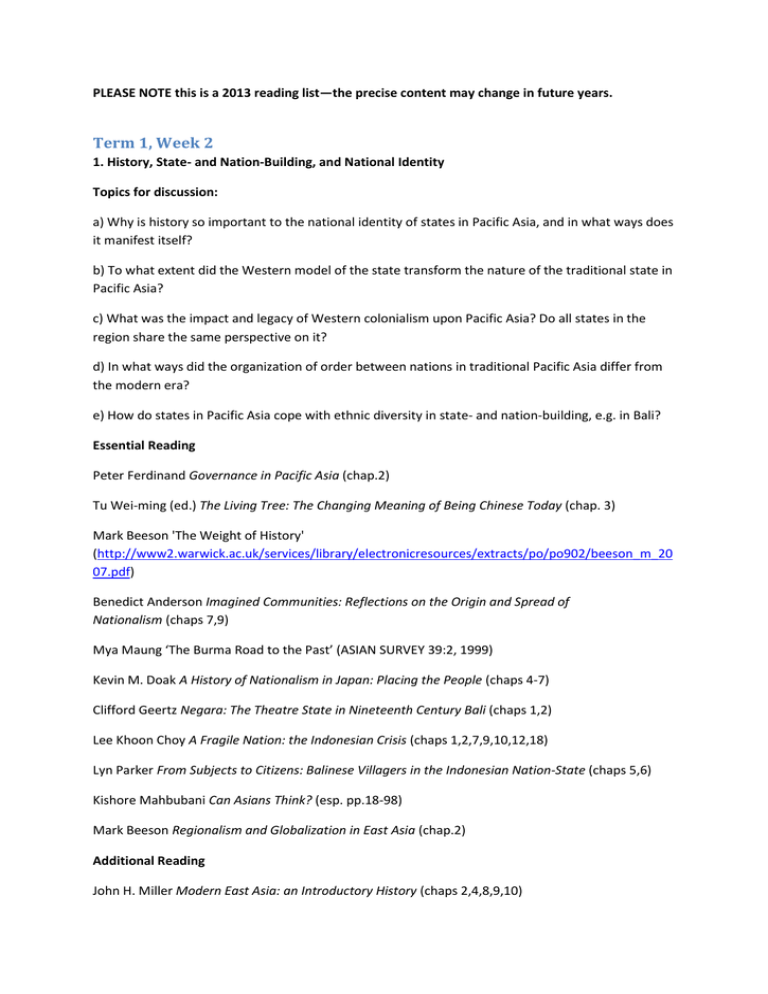
PLEASE NOTE this is a 2013 reading list—the precise content may change in future years. Term 1, Week 2 1. History, State- and Nation-Building, and National Identity Topics for discussion: a) Why is history so important to the national identity of states in Pacific Asia, and in what ways does it manifest itself? b) To what extent did the Western model of the state transform the nature of the traditional state in Pacific Asia? c) What was the impact and legacy of Western colonialism upon Pacific Asia? Do all states in the region share the same perspective on it? d) In what ways did the organization of order between nations in traditional Pacific Asia differ from the modern era? e) How do states in Pacific Asia cope with ethnic diversity in state- and nation-building, e.g. in Bali? Essential Reading Peter Ferdinand Governance in Pacific Asia (chap.2) Tu Wei-ming (ed.) The Living Tree: The Changing Meaning of Being Chinese Today (chap. 3) Mark Beeson 'The Weight of History' (http://www2.warwick.ac.uk/services/library/electronicresources/extracts/po/po902/beeson_m_20 07.pdf) Benedict Anderson Imagined Communities: Reflections on the Origin and Spread of Nationalism (chaps 7,9) Mya Maung ‘The Burma Road to the Past’ (ASIAN SURVEY 39:2, 1999) Kevin M. Doak A History of Nationalism in Japan: Placing the People (chaps 4-7) Clifford Geertz Negara: The Theatre State in Nineteenth Century Bali (chaps 1,2) Lee Khoon Choy A Fragile Nation: the Indonesian Crisis (chaps 1,2,7,9,10,12,18) Lyn Parker From Subjects to Citizens: Balinese Villagers in the Indonesian Nation-State (chaps 5,6) Kishore Mahbubani Can Asians Think? (esp. pp.18-98) Mark Beeson Regionalism and Globalization in East Asia (chap.2) Additional Reading John H. Miller Modern East Asia: an Introductory History (chaps 2,4,8,9,10) Charles Holcombe A History of East Asia: From the Origins of Civilization to the 21st Century (chaps 58) Nicholas H. Tarling Nations and States in Southeast Asia (part 2) W.J.F. Jenner The Tyranny of History: The Roots of China’s Crisis (chap.11) David Martin Jones Political Development in Pacific Asia (chap.1) François Godement The New Asian Renaissance (chaps 1-5) Colin Mackerras Eastern Asia: an Introductory History (part 4) Eva-Lotte Hedman & John Sidel Philippine Politics in the Twentieth Century: Colonial Legacies, PostColonial Trajectories(chaps 2,7,8) Ruth McVey (ed) South East Asian Capitalists (chaps 1,3) Constance Lever-Tracy et al The Chinese Diaspora and Mainland China (esp. chap.2) Tak-Wing Ngo & Richard Boyd (eds) State-Making Projects in Asia (chaps 3,4,7) Wang Gungwu (ed) Nation-Building: Five Southeast Asian Histories B.R. Myers The Cleanest Race: How North Koreans See Themselves and Why It Matters (part 2) David S.G. Goodman ‘Are Asia’s “Ethnic Chinese” a Regional Security Threat?’(SURVIVAL Winter 1997-8) Gilbert Rozman The East Asian Region: Confucian Heritage & Its Modern Adaptation (chaps by Rozman and Robinson) Sterling Seagrave Lords of the Rim (chaps 9-12) ‘Greater China’ (special issue of the CHINA QUARTERLY 1995) Murray Weidenbaum & James Hughes The Bamboo Network (chaps 1-4) Brian C. Folk & K.S. Jomo Ethnic Business: Chinese Capitalism in Southeast Asia (chap.4) Tai Hung-chao Confucianism & Economic Development: an Oriental Alternative (chaps 3,4,9) Adrian Chan ‘Confucianism and Development in East Asia’ (JOURNAL OF CONTEMPORARY ASIA 1996) Gerald Clarke ‘From Ethnocide to Ethnodevelopment? Ethnic Minorities & Indigenous Peoples in Southeast Asia’ (THIRD WORLD QUARTERLY 22(3) 2001) David Brown ‘Why Might Constructed Nationalist & Ethnic Ideologies Come Into Confrontation With Each Other?’ (PACIFIC REVIEW 2002(4)) Jamie S. Davidson and David Hendry The Revival of Tradition in Indonesia: the deployment of adat from colonialism to indigenism
